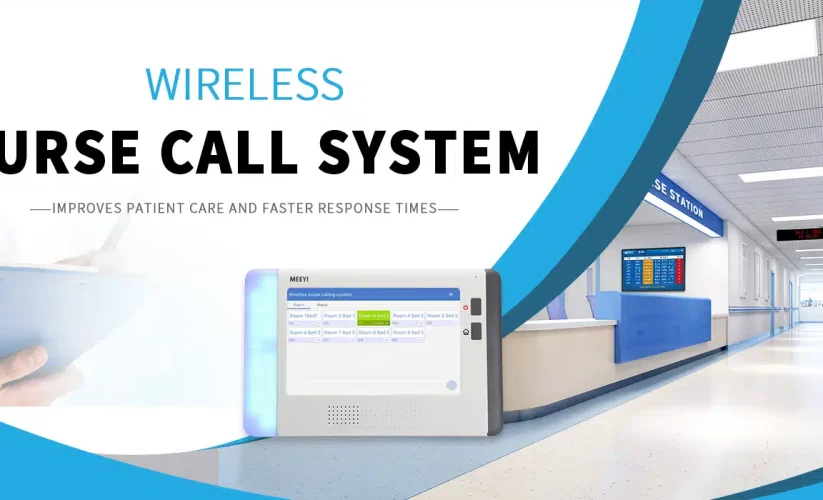
Ensuring Success with Comprehensive Communication Solutions
In the modern business landscape, effective communication is more than just exchanging information; it is the backbone of organizational success. As companies navigate complex challenges and strive for growth, implementing comprehensive communication solutions is essential. One of the most effective ways to enhance internal and external communication is through company communication platforms. These platforms not only streamline interactions but also foster collaboration, engagement, and innovation. This article will explore the importance of comprehensive communication solutions and how they can drive success in today’s dynamic business environment.
The Importance of Effective Communication
Effective communication is fundamental to the success of any organization. It facilitates collaboration, enhances productivity, and builds strong relationships both within the team and with external stakeholders. Here are some reasons why communication is critical:
1. Improved Collaboration
Collaboration is essential for driving innovation and achieving organizational goals. Effective communication ensures that team members can share ideas, provide feedback, and work together seamlessly. In today’s increasingly remote work environment, having a robust communication platform is vital for maintaining collaboration among geographically dispersed teams.
2. Enhanced Productivity
When communication flows smoothly, employees can focus on their tasks without unnecessary distractions. Clear communication reduces misunderstandings and the need for repeated clarifications, allowing teams to work more efficiently and effectively.
3. Stronger Relationships
Building strong relationships with employees, clients, and stakeholders is crucial for long-term success. Open lines of communication create an environment of trust and transparency, fostering positive relationships that can lead to loyalty and collaboration.
4. Agility and Responsiveness
In a fast-paced business environment, organizations must be agile and responsive to changes. Effective communication enables teams to adapt quickly to new challenges and opportunities, ensuring that the organization remains competitive.
The Role of Company Communication Platforms
Company communication platforms are integrated solutions designed to facilitate communication and collaboration within an organization. These platforms typically include features such as instant messaging, video conferencing, file sharing, and project management tools. By consolidating communication channels, these platforms provide a comprehensive solution that meets the diverse needs of modern businesses.
Key Features of Comprehensive Communication Solutions
- Real-Time Messaging: Instant messaging features allow employees to communicate quickly and efficiently, reducing the need for lengthy email exchanges. Real-time messaging fosters immediate collaboration and quick decision-making.
- Video Conferencing: With remote work becoming increasingly common, video conferencing tools are essential for maintaining face-to-face interactions. High-quality video calls enhance engagement and collaboration, helping teams stay connected regardless of their location.
- File Sharing and Collaboration: Integrated file-sharing capabilities allow team members to share documents and collaborate in real time. This feature streamlines workflows and ensures that everyone is on the same page.
- Task and Project Management Tools: Many communication platforms come equipped with task management features that enable teams to assign tasks, set deadlines, and track progress. This functionality enhances accountability and ensures that projects stay on track.
- Integration with Other Tools: Comprehensive communication solutions often integrate with other software applications, such as customer relationship management (CRM) systems, project management tools, and productivity software. This integration enhances overall efficiency and streamlines workflows.
Ensuring Success with Communication Solutions
To ensure success with company communication platforms, organizations should take the following steps:
1. Assess Communication Needs
Before implementing a communication platform, it is crucial to assess the specific communication needs of your organization. Engage employees from various departments to gather insights on their preferences and challenges. Understanding these needs will help you choose a platform that aligns with your organization’s goals.
2. Choose the Right Platform
Select a communication platform that meets your organization’s specific requirements. Consider factors such as ease of use, scalability, and integration capabilities. The right platform should be user-friendly and adaptable to your organization’s evolving needs.
3. Provide Comprehensive Training
Once the platform is selected, provide thorough training for all employees. Ensure that team members understand how to use the platform effectively and are aware of its features. Ongoing support and resources should also be available to address any questions or challenges that arise.
4. Foster a Culture of Open Communication
Encourage a culture of open communication within the organization. Leaders should model transparent communication practices and actively engage with employees through the platform. When employees feel comfortable sharing their thoughts and ideas, it fosters a positive work environment.
5. Monitor Usage and Gather Feedback
Regularly monitor the usage of the communication platform and gather feedback from employees. Use analytics tools to track engagement levels and identify areas for improvement. Continuously assess the effectiveness of the platform and make necessary adjustments to enhance its value.
6. Promote Collaboration
Encourage employees to utilize the platform for collaboration. Highlight features that facilitate teamwork, such as shared documents and project management tools. By promoting collaboration, organizations can enhance creativity and innovation.
7. Ensure Data Security
In today’s digital landscape, data security is paramount. Ensure that the communication platform you choose has robust security features, such as encryption and access controls. Protecting sensitive information is essential for maintaining trust within the organization.
Conclusion
In an increasingly interconnected world, comprehensive communication solutions are essential for ensuring success. Company communication platforms enhance collaboration, improve productivity, and foster strong relationships, ultimately driving organizational growth. By assessing communication needs, choosing the right platform, and promoting a culture of open communication, organizations can leverage these tools to create a more engaged and successful workforce. As businesses continue to evolve, investing in effective communication solutions will remain a key strategy for achieving sustained success.





